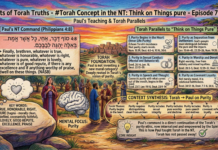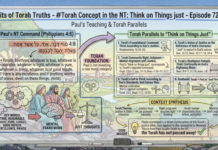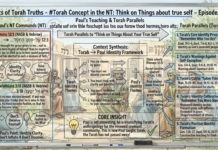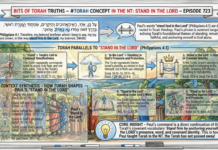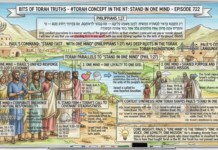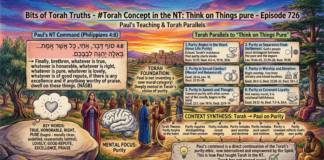Bits of Torah Truths – Torah Concept in the NT: Let Believers Who Suffer commit their souls to God – Episode 576
1 Peter 4:19
לָכֵן גַּם הַסּוֹבְלִים כִּרְצוֹן אֱלֹהִים יַפְקִידוּ נָא אֶת נַפְשׁוֹתֵיהֶם בְּיַד הַבּוֹרֵא הַנֶּאֱמָן, בַּעֲשִׂיַּת הַטּוֹב.
#torah #torahwisdom #torahtruth #torahforlife #torah4you #torahtruth
1 Peter 4:19
4:19 Therefore, those also who suffer according to the will of God shall entrust their souls to a faithful Creator in doing what is right. (NASB)
https://www.matsati.com/index.php/category/bits-of-torah-truths/
We note the Torah does not use the phrase “commit your souls” as it says in 1 Peter 4:19, however, the concept of entrusting oneself to God amid suffering is the same thing which is deeply embedded in the Torah’s covenantal and narrative framework. For example, entrusting the Spirit to God: In Genesis 22:9–12 Abraham prepares to offer Isaac, trusting God’s promise even in the face of loss. In Exodus 14:13–14 Moses tells Israel at the Red Sea, “Stand still and see the salvation of the Lord.” This means that they must entrust their fate to God. Deuteronomy 32:39 “I kill and I make alive… and there is no one who can deliver out of My hand.” God alone holds life and death. These moments reflect radical trust in God’s sovereignty, even when suffering or death looms. Suffering According to God’s Will: In Exodus 5–6 Moses suffers rejection and hardship, yet God affirms his mission and promises deliverance. In Numbers 20:1–13 Moses and Aaron suffer consequences for striking the rock, yet God remains faithful to His covenant. In Deuteronomy 8:2–5 Israel’s wilderness suffering is framed as divine testing and fatherly discipline. Note that suffering is not random, it’s often purposeful, refining, and covenantal. Note also Leviticus 10:1-3 and Deuteronomy 31:6-8 both are examples of the Torah’s repeated calls for courageous faith in the face of suffering, trusting God’s presence and justice. Peter’s call to entrust the soul to a faithful Creator echoes the Torah’s portrayal of God as the sole guardian of life, worthy of trust in suffering, and faithful to those who walk in obedience. Note the Torah similarities! This is how Peter and the NT text taught Torah, the Torah has not passed away!

